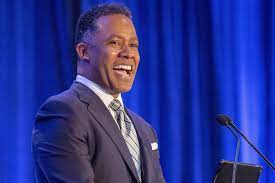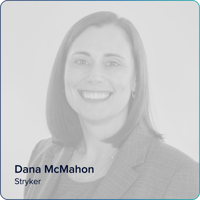We are in the midst of a multipart review of last week’s speeches from the Department of Justice (DOJ) at the recently concluded ABA’s 38th Annual National Institute on White Collar Crime, held in Miami. Compliance professionals, white collar defense lawyers and indeed corporate executives will be talking about the past week in Miami for many moons to come. The speeches were made by Deputy Attorney General Lisa Monaco (2023 Monaco Speech) and Assistant Attorney General Kenneth A. Polite (Polite Speech) and they previewed a number of initiatives by the DOJ which every compliance professional will need to study in some detail. These new initiatives included:
The Criminal Division’s Pilot Program Regarding Compensation Incentives and Clawbacks
Evaluation of Corporate Compliance Programs (Updated March 2023)
Revised Memorandum on Selection of Monitors in Criminal Division Matters
Over this series, I will be taking a deep dive into these speeches and new Evaluation of Corporate Compliance Program, Monitor Selection and Pilot Program on Incentives and Clawbacks. Today we continue with an initial review of the Polite Speech.
Polite began with a clear plea for the righteousness of being a prosecutor. Interestingly he began by describing what he saw at the ABA White Collar conference in San Francisco, “During a short afternoon walk between the hotel and the U.S. Attorney’s Office, we saw homelessness, and drug addiction, and food insecurity, and lack of hygiene, and violence.” He went on to add “Human suffering. We see it in every city where this conference gathers, be it the Tenderloin area of San Francisco, Liberty City here in Miami, or the Lower Ninth Ward in New Orleans. The same things could be found in nearly every town across this country. Across this globe. Right outside. Right around us. Right around you, if you decide to open your eyes and accept a broader definition of community.” From there he related being a DOJ prosecutor to a calling to help fix these problems but being “problem-solvers”.
He used these domestic urban ills to transition to what he called a ‘righteous’ prosecution of Claudia Patricia Diaz Guillen, the former National Treasurer of Venezuela and her husband. They were charged with accepting over $100 million “in bribes from a Venezuelan billionaire businessman for access to purchase bonds from the Venezuela National Treasury at a favorable exchange rate. All the while, millions of Venezuelans had to confront daily economic crisis, rampant inflation, and unimaginable poverty and hunger.” This is while “96% of Venezuelans lived in poverty.” He ended this section by noting the prosecution was “a virtuous case that spanned the globe to hold multiple corrupt actors accountable and remove corrupt leadership – this prosecution exemplifies what our prosecutors can do.”
Polite believes that there is a clear tie between poverty and corruption. (One reason the San Francisco remarks were so interesting.) This is why it is important to prosecute corrupt government officials such as Diaz because her actions keep the people of Venezuela in such dire economic straits. He stated, “Just as crime recognizes no borders, our efforts to combat it must be equally boundless. We need our partners – both domestic and international – to solve community problems. That is where the Criminal Division thrives.” In the Diaz case there was international cooperation at various levels. Think about that for a moment, the US and Venezuelan governments cooperating on anything, yet they apparently did cooperate on this matter. Polite added that several recent Foreign Corrupt Practices Act (FCPA) corporate enforcement matters, “Glencore, ABB, Danske, and Stericycle, among many others, underscore the successes that we’ve shared with our colleagues abroad.”
To be truly effective community problem-solvers, we have to broaden our sense of community by literally ‘spanning the globe’ to fight crime, including bribery and corruption. Polite stated, “Crime does not limit itself by country or region. Corruption’s corrosive effects are global, with the world’s poor often bearing the brunt. Bribery threatens our collective security by undermining the rule of law and providing a breeding ground for other crime and authoritarian rule.”
He pointed to this level of international cooperation which “has also been critical to MLARS’s work on the Kleptocracy Asset Recovery Initiative, which has targeted and restrained more than $3.6 billion relating to foreign official corruption and associated money laundering affecting the U.S. financial system.” As the US financial systems plays the central role in the world’s financial community and international banking system, the US MLARS Bank Integrity Unit (BIU) has worked to bring to justice “actors around the world seek to exploit the U.S. financial system, in some instances working with global financial institutions that facilitate their crimes.” Hence why the US and not Danske Bank’s home country of Denmark brought the criminal charges against the Banks for its role in a years-long money laundering operation out of its Estonia branch.
To demonstrate this commitment for the DOJ Polite stated, “since 2010, the BIU – with just 12 attorneys – has imposed more than $13 billion in financial penalties in 10 corporate criminal resolutions with global financial institutions for sanctions violations.” But more commitment is on the way as Polite pointed to “our Deputy Attorney General’s announcement yesterday of additional resources for the BIU and her focus on the intersection of national security and corporate prosecution. I know our BIU prosecutors will build upon their outstanding track record while continuing to work shoulder to shoulder with our partners in the National Security Division to achieve our united mission.”
Finally, in a most welcomed development, Polite stated “there’s no better way to broaden community than to speak your partners’ language – literally.” He announced the Criminal Division’s Office of Prosecutorial Development, Assistance, and Training – or OPDAT – will re-issue the FCPA Resource Guide in Spanish later this month. Kudos to the DOJ for taking this step.
Join me tomorrow where I take a deep dive into clawbacks and other new components of a compliance program.







